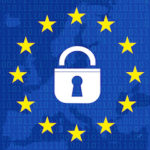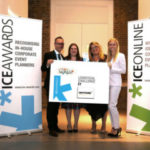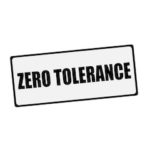On March 26, Indiana Gov. Mike Pence signed into law the Religious Freedom Restoration Act (RFRA). On April 2, he signed an amended version of the law. In the week between, IEar.
New York, Connecticut, Washington, and other states banned travel by state employees to Indiana, groups such as the American Federation of State, County, and Municipal Employees (AFSCME) and the Christian Church (Disciples of Christ) canceled their upcoming conferences there, and industry organizations such as the Convention Industry Council and ASAE — as well as Indianapolis Mayor Greg Ballard — urged the Indiana General Assembly either to repeal the law or to amend it to bolster LGBT protections.
In the face of the potential loss of millions of dollars in travel and tourism revenue, the General Assembly amended the law to prohibit LGBT discrimination; that’s what Pence signed on April 2, just days before the NCAA Final Four games were played at Lucas Oil Stadium in Indianapolis. As a result, AFSCME and the Disciples of Christ, among other groups, rescinded their cancellations.
Visit Indy, Indianapolis’ CVB, was at the center of efforts against the RFRA before it was even passed. Convene talked to Leonard Hoops, Visit Indy’s president and CEO, a week after the amended law was signed.

When did Visit Indy become aware that this legislation was making its way through the General Assembly?
We heard in January. We have an organization that we use that tracks various bills that are being considered in the legislature each year, and which ones are potentially going to have an impact on our industry. That outside agency we work with told us sometime in January that there were rumors that some sort of religious-freedom law was going to be introduced into the General Assembly.
When I personally first found out that there was actual legislation drafted was Feb. 3. I got an email from a friend of mine who is the executive director of the ACLU of Indiana saying, hey, don’t know if you’ve seen this, but there are three different religious-freedom bills being considered right now.
When did you start hearing from your meetings and events clients who were concerned about the law?
The very first time we started hearing about it that I know of — this isn’t necessarily the definitive answer, because one of my salespeople might have heard from a customer before I did — was when the General Assembly passed it and it started getting national media coverage, before the governor signed it. That’s when we started hearing from a variety of customers saying, hey, we’re seeing media reports on this, we’re getting feedback from potential attendees or exhibitors or others. The immediate public perception, I think, was that there is a very blatant attempt by lawmakers in Indiana to create some sort of vehicle to allow discrimination.
And the act got signed into law on March 26, and then the concerns from customers went from being a handful of groups that had reached out saying, you need to get this stopped, to virtually every group that had a meeting in Indiana within the next six to 12 months.
Between when the law was passed and when it was amended, how did Visit Indy get the word out that meetings and events would not find a culture of intolerance in Indianapolis?
There were four different tracks that we were working on. Number one was we needed to immediately respond to our convention customers who were saying, we’re going to cancel if this thing doesn’t get fixed very quickly. So our immediate response was to have our team provide whatever information we could, because a lot of our customers didn’t have any context whatsoever.
Track number two was to get together with the partners we had already been working with — ACLU of Indiana, Indy Chamber, Indiana Sports Corp, a consortium of business leaders from [Indiana-based companies such as] Lilly, Cummins, Salesforce.com — to talk about the very specific language we wanted to see amended to the existing law in order to ensure that it couldn’t be used for discrimination.
Track three was developing messaging. We came up with that “Indy Welcomes All” campaign. Which was frustrating, to have to defend something that is inherent to your culture. We’ve already had our own human-rights ordinance in Indianapolis for a decade that prevents against discrimination, including against discrimination based on sexual orientation and gender identity. We’re known for “Hoosier Hospitality.” And we’ve been recognized for our Super Bowls, and our Finals Fours, and [as] the USA Today number-one convention city, which was in large part because the customers who have met here are such great evangelists for Indianapolis that they went out and they spread the word to other customers.
And then the fourth track is that we also had a Final Four to pull off. You know, that’s not a small event. My best guesstimate is we had 100,000-plus visitors in town for that, because the stadium itself seats more than 70,000. Our hotels were filled up for at least a 20-mile radius. We had to make sure that the teams were happy. We had to make sure their fans were happy. We were working with the NCAA, who had their own concerns about the original law and who, fortunately for us, supported the amended law.
What was the actual nature of your messaging? Was it primarily online and social-media-driven?
Yes, it was. There’s an existing coalition called Love Indy, which has been working for some time on showing why this is a great place to live, and so they were involved. In fact, it was the Love Indy group that came up with the logos and all the things that went with “Indy Welcomes All.” Before “Indy Welcomes All” got officially launched, we went off on our own and updated our website with “All Are Welcome in Indy” and the message that we supported our friends in the LGBT community.
What did you do once you found out that the law had been amended the way you wanted it to be?
We immediately put out a statement, basically saying that we supported the amended law, that we felt that it very directly addressed the greatest issues which were being brought up, and we noted that the coalition as a whole supported it. And so our number-one priority was to immediately get that message to our convention customers. They went from being in threatening-cancellation mode to being, okay, how do we get this message effectively to our attendees, our exhibitors, etc., so that they will start coming back to register for the show? And we had a number of groups that are meeting in the next two months tell us within days that they had seen registrations surge back up.
Has there been any silver lining to this situation, in terms of the story it allowed you to tell about Indianapolis as a meeting and travel destination?
There’s a couple silver linings. One is that I was very appreciative of the support that we as an organization and we as a city got from our industry. Deborah Sexton, [PCMA’s] president and CEO, that was my favorite support, because she basically came out after the fact and recognized that we were against this from the very get-go, that we as an organization and we as a city share the same principles that PCMA and that virtually all of our industry shares, which is that all should be welcome, all the time.
As an individual, I consider it a positive thing to have helped be part of a process that ensures that in Indiana, for our friends in the LGBT community, this law can’t be used in any way, shape, or form against them to deny service or to be used as a defense for discrimination. To be part of that process, to make that happen, makes me feel better. As an organization and as a city that does believe in civil- and human-rights protections based on gender identity and sexual orientation, the fact that we got this particular law amended to ensure it can’t be used in a discriminatory way, that’s a very positive thing.



